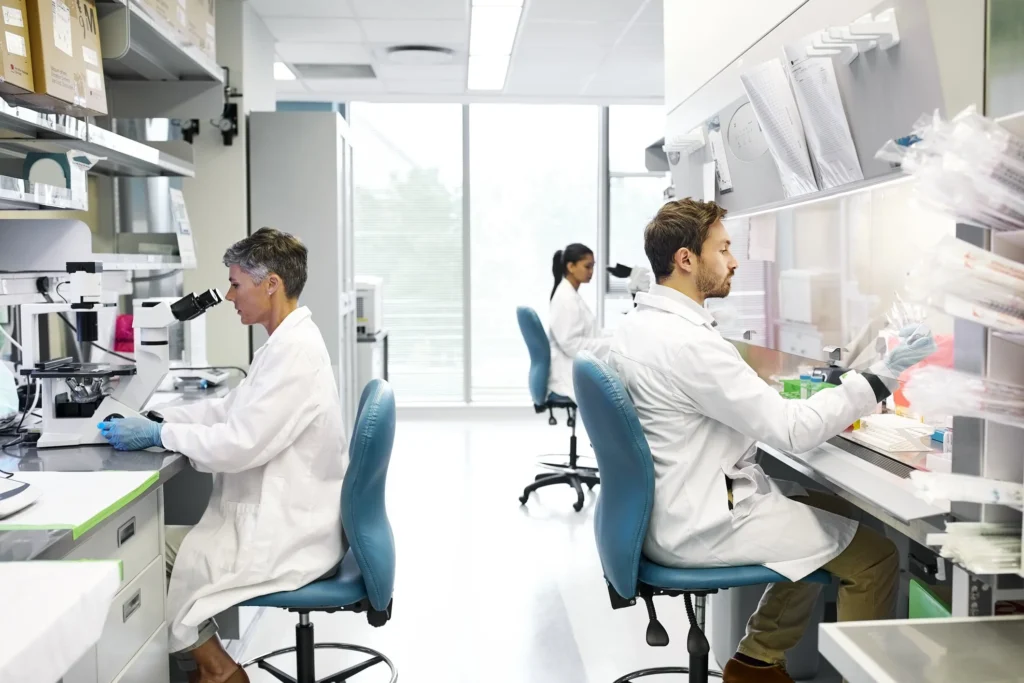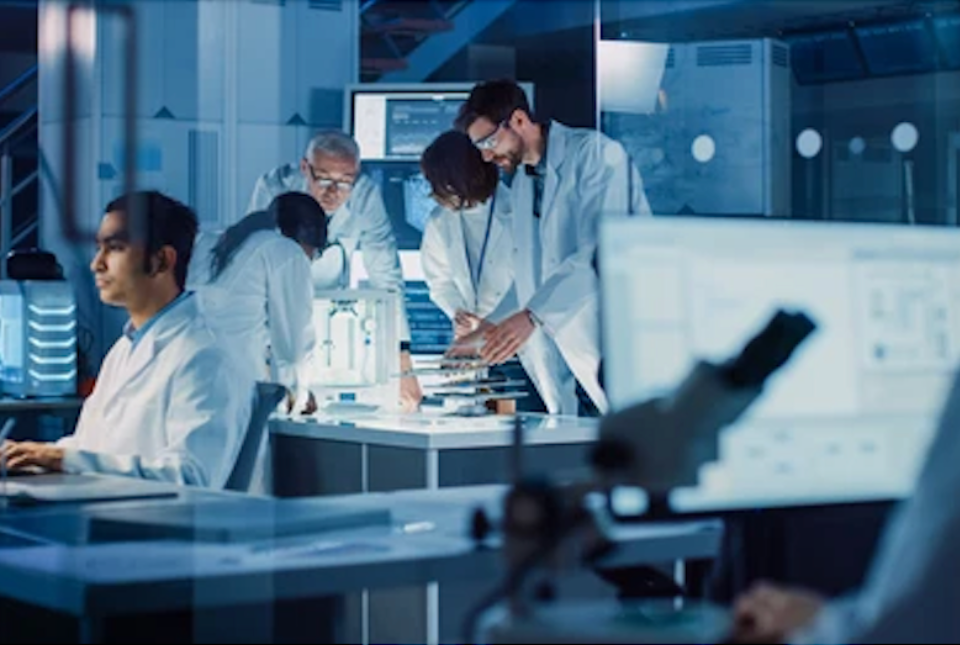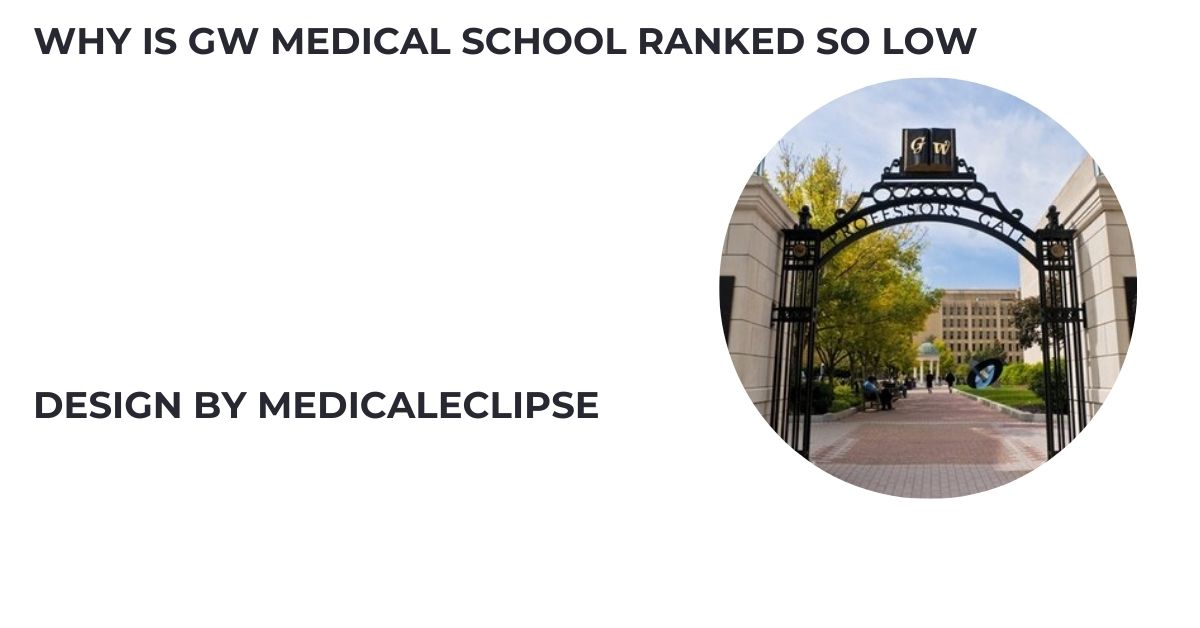GW Medical School’s lower ranking is due to student selectivity, research funding, and peer reputation, but it is working on improvements.
In this article, we will explore why GW Medical School is ranked lower than expected and what factors might contribute to its standing.
Factors Affecting Medical School Rankings:

Student Selectivity:
One key metric in determining medical school rankings is student selectivity. This includes the average GPA and MCAT scores of admitted students. GW Medical School tends to have a broader acceptance range, which can impact its rankings.
Clear Admission Criteria:
Establish transparent, clear, and well-communicated criteria for admission that align with the institution’s academic standards and goals. This helps attract the right students and ensures a strong applicant pool.
Holistic Review Process:
Consider a range of factors beyond academic performance, such as extracurricular involvement, leadership roles, and personal statements, to assess applicants’ overall potential and fit for the institution.
Also Read: The Latest Advances in Bladder Cancer Treatment
Targeted Recruitment:
Develop targeted recruitment strategies to attract high-caliber students. This could include attending high school fairs, collaborating with top academic programs, and offering information sessions in key regions.
Strong Branding and Reputation:
Build and maintain a positive reputation in academic and professional circles. A strong reputation can naturally attract more selective applicants who are seeking a prestigious or well-regarded institution.
Competitive Financial Aid:
Offer attractive scholarships, grants, and financial aid packages that can draw in high-achieving students who might otherwise consider other institutions with better financial support.
Research Funding and Output:

Another crucial factor is research funding and output. Top-ranked medical schools often have significant research grants and produce numerous influential publications. GW Medical School may not receive the same level of funding or produce as many high-impact research articles compared to higher-ranked institutions.
Diverse Funding Sources:
Seek out multiple funding opportunities, including government grants, private foundations, industry partnerships, and crowdfunding. Diversifying funding sources can provide more stability and flexibility for research projects.
Building Strong Partnerships:
Collaborate with other institutions, organizations, or industries to pool resources, share expertise, and access additional funding streams. Strong partnerships can also enhance the credibility of research proposals.
Research Grant Writing Support:
Offer training and resources for researchers to improve their grant writing skills. Professional development in writing clear, compelling proposals can significantly increase the likelihood of securing funding.
Also Read: How Nutritional Counseling Supports Your New Year’s Health Goals
Focus on High-Impact Research:
Prioritize research projects that address current, relevant issues or have the potential for substantial societal impact. Research with high potential for practical applications is often more appealing to funders.
Tracking and Showcasing Success:
Regularly track and report on research outputs, including publications, presentations, and grants awarded. Demonstrating a history of success can increase trust and attract more funding.
Reputation Among Peers:

Peer assessment is a subjective yet impactful aspect of rankings. Schools with long-standing reputations or affiliations with renowned hospitals may have an edge. GW Medical School’s reputation, while solid, may not be as strong in the research community.
Consistency and Reliability:
Consistently deliver quality work, meet deadlines, and contribute effectively to group projects or initiatives. Reliability builds trust and respect.
Collaboration and Teamwork:
Actively engage in collaborative efforts, offering support and sharing knowledge. Being a team player enhances how peers view you and fosters strong professional relationships.
Effective Communication:
Communicate clearly and respectfully in both written and verbal forms. Listening and expressing ideas thoughtfully helps create positive interactions and shows professionalism.
Also Read: What To Ask Your Gynecologist as You Age
Taking Initiative:
Volunteer for tasks, leadership roles, or opportunities to improve processes. Taking initiative demonstrates proactivity and a commitment to your field or group.
Mentorship and Support:
Offer help and guidance to others, especially those who are newer or less experienced. Being a mentor establishes you as a reliable, knowledgeable figure within your community.
Graduate Success and Residency Match Rates:

Residency match rates and the success of graduates in securing competitive positions play a role in rankings. If graduates from GW Medical School have lower match rates in top-tier residencies, it could affect the school’s ranking.
Comprehensive Career Counseling:
Offer personalized counseling and workshops to guide students in preparing their residency applications, including resume-building, interview preparation, and personal statement writing.
Mentorship Programs:
Pair students with successful alumni or faculty members who can offer advice and insights based on their own residency match experiences.
Early Career Planning:
Begin career and residency planning early in students’ education to help them stay focused on their goals and track their progress toward match success.
Strong Clinical Experience:
Ensure students gain diverse and relevant clinical experience through rotations, electives, and hands-on training, which will strengthen their residency applications.
Research Opportunities:
Encourage students to participate in research projects that align with their desired specialty, as research experience can significantly enhance residency applications.
Also Read: The Importance of Diabetic Foot Care and Its Impact on Health
Efforts to Improve Rankings:
Enhancing Research Opportunities:
GW Medical School has been working on increasing its research output by fostering collaborations and securing more funding. These efforts aim to boost its academic reputation and attract top-tier faculty and students.
Strengthening Clinical Training:
By enhancing clinical training programs and partnerships with leading hospitals, GW Medical School is striving to improve the practical skills and competitiveness of its graduates.
Increasing Student Support:
Providing robust student support services, including career counseling and mentorship, helps students perform better academically and professionally, which can reflect positively on the school’s rankings.
FAQ’s
1.Why is GW Medical School ranked lower than expected?
Its ranking is affected by factors such as broader student acceptance, less research funding, and peer reputation.
2.How does student selectivity impact GW Medical School’s ranking?
A broader acceptance range can lower average GPA and MCAT scores, impacting rankings negatively.
3.What role does research output play in the rankings?
Lower research funding and fewer high-impact publications can reduce a school’s ranking.
4.Is GW Medical School improving its ranking efforts?
Yes, the school is increasing research output, strengthening clinical training, and enhancing student support services.
5.Does the reputation among peers affect the ranking significantly?
Yes, peer assessment is a crucial factor, with schools having strong reputations often ranking higher.
Conclusion
While GW Medical School’s ranking may not be as high as some expect, it’s important to understand the multifaceted reasons behind this. Factors like student selectivity, research output, and peer reputation significantly impact rankings. However, the school’s ongoing efforts to improve its programs and support systems indicate a commitment to climbing the ranks in the future. Prospective students should consider these dynamics and the overall quality of education when evaluating GW Medical School.

Leave a Reply